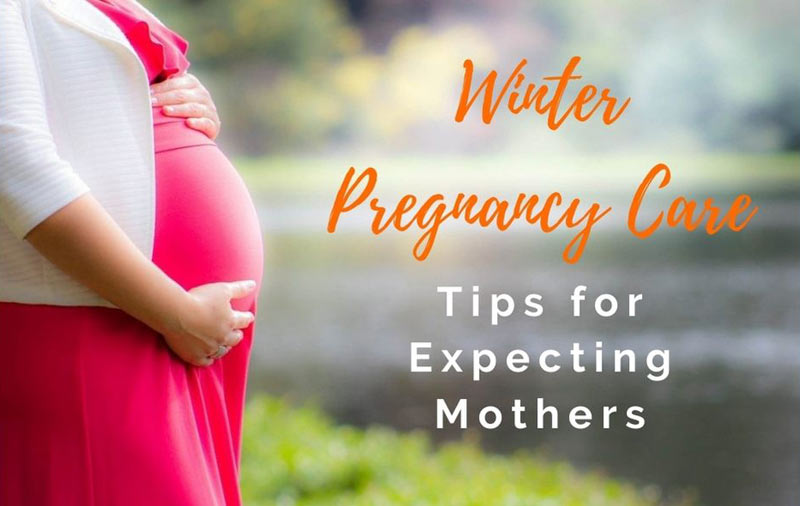Winter Pregnancy Care – Tips for Expecting Mothers

The weather begins to change, the mercury descends, and winter is coming. During the coldest months of the year, the temperatures force us to follow certain routines to ensure good health. Certain practices must be followed, especially by those sectors of the population considered most vulnerable, such as pregnant women.
To ensure a correct state of health for pregnant women, they must consider a series of rules to ensure their health and the baby’s good health in the womb. In this way, the winter will pass without major complications.
Benefits of Winter Pregnancy
The most important advantage of being pregnant in winter is that you will not be hot, or at least not as hot as in summer. Thanks to the avoidance of high temperatures, the feeling of fatigue among pregnant women decreases, with which they can enjoy their pregnancy more on a day-to-day basis.
The baby’s conception should occur between May and July for the third trimester of pregnancy to coincide with the coldest months. However, babies do not always arrive when we want, so do not be overwhelmed trying to plan as much as possible for the baby’s arrival; you have to be prepared for everything!
If you are going to spend the last stretch of pregnancy in the coldest months, let’s see what the advantages are:
- The summer months are avoided, which represents a benefit for you as a future mother. If you conceive your little one between January or February, your last weeks of gestation will be during October or November. This will cause the typical discomforts not to be further aggravated by heat.
- With the cold, the pregnant woman will notice less feeling of heaviness and less fluid retention. In addition, the cooler weather will help the mother to have less dizziness.
- Less varicose veins! Cooler temperatures also help prevent the appearance of varicose veins, especially during the winter months.
- Being able to exercise helps maintain a correct weight without the danger of suffering from lipothymia.
- You will rest better at night. Added to the discomfort of pregnancy, the heat that wakes you up at night during the summer months. In winter, one of the advantages is undoubtedly being able to rest throughout the night without waking up overwhelmed by the heat.
- Wide and comfortable clothes are in fashion! You will not have to buy all the clothes in the “maternity” section that we already know are not cheap at all. You will find many wide winter garments to combine with, for example, leggings or jeggings. And you will be fantastic!
- The impact on the baby’s health! Since the critical months of pregnancy will be during the months with more sun, which will provide more vitamin D, a fundamental component for the absorption of calcium and strengthening of your baby’s muscles.
- Babies with better eyesight, and is that the “Ophthalmology” has related the appearance of myopia directly with the moment of the birth of a baby. Babies born during the summer months are more prone to long-term visual impairments. This may be due to their daily exposure to the sun’s rays, which are a bit more aggressive during summer.
- Longer life of the baby! Some studies point to a connection between being born during autumn and winter and having a longer life. 16% of babies born in these times are usually centenarians.
Of course, do not forget that pregnant women tend to catch colds before, so remember to carry out a healthy and healthy diet and consume a lot of iron so that your body works perfectly and in this way you avoid anemia.
Tips to Survive a Winter Pregnancy
If you are thinking about carrying a baby in winter, here are some tips for a safe and healthy pregnancy:
#Take care of your diet and maternity look
Winter is synonymous with low temperatures. Therefore, it is not surprising that the first advice given to mothers is to stock up on warm and comfortable winter maternity wear from a reputable brand like Wobbly Walk, which will help them face the drop in thermometers. Specialists advise using several thin layers instead of one thick. In this way, women can adapt to different environments, such as heated rooms. In this way, it will also be possible to avoid hot flashes caused by pregnancy.
Mothers should also watch the diet. Winter is a time marked by holidays and festivities, like Diwali, where family meals can make the menu of pregnant women upset. Avoid excesses and follow the guidelines recommended for pregnant women. It is crucial to control weight and other problems related to poor nutrition, such as gestational diabetes.
#Exercise and hygiene to avoid contagion
During the winter, the temperatures drop, and the weather worsens. But pregnant women should incorporate exercise into their weekly routines to take advantage of these practices’ benefits. If there are doubts about which activities are the best for pregnancy and what measures to apply to perform them without problem, you can go to the specialist reviewing the moms-to-be to give various advice.
Hygiene should also be a common note, not only for pregnant women but for everyone at home. Winter is the time when viruses like the flu make an appearance and are easily transmitted. For this reason, certain measures must be ensured to prevent them from reaching the woman. Among these practices, washing hands should never be absent when arriving home.
#Flu and pregnancy
Pregnant women represent one of the risk groups when it comes to the flu. During pregnancy, the immunity weakens, making it more challenging to face this virus. A quite clear reason why precautions must be taken to prevent such health problems in mothers. The recommendation is that women get vaccinated since although mild flu does not harm your pregnancy or your child, you could be at risk if it worsens. Symptoms such as high fever can lead to, for example, premature delivery or low birth weight babies. In addition to this injectable, pregnant women should also follow the following recommendations:
- Avoid close contact with people sick with the flu, and do not share food or utensils (glasses, cutlery, tissues) or other objects without cleaning them properly.
- Avoid touching your eyes, nose, and throat. Use single-use tissues.
- Wash your hands frequently with soap and water or an alcoholic disinfectant solution (especially after touching common surfaces such as railings, doorknobs, public transport fasteners, keyboards, etc.).
- Ventilate closed spaces frequently by opening windows.



